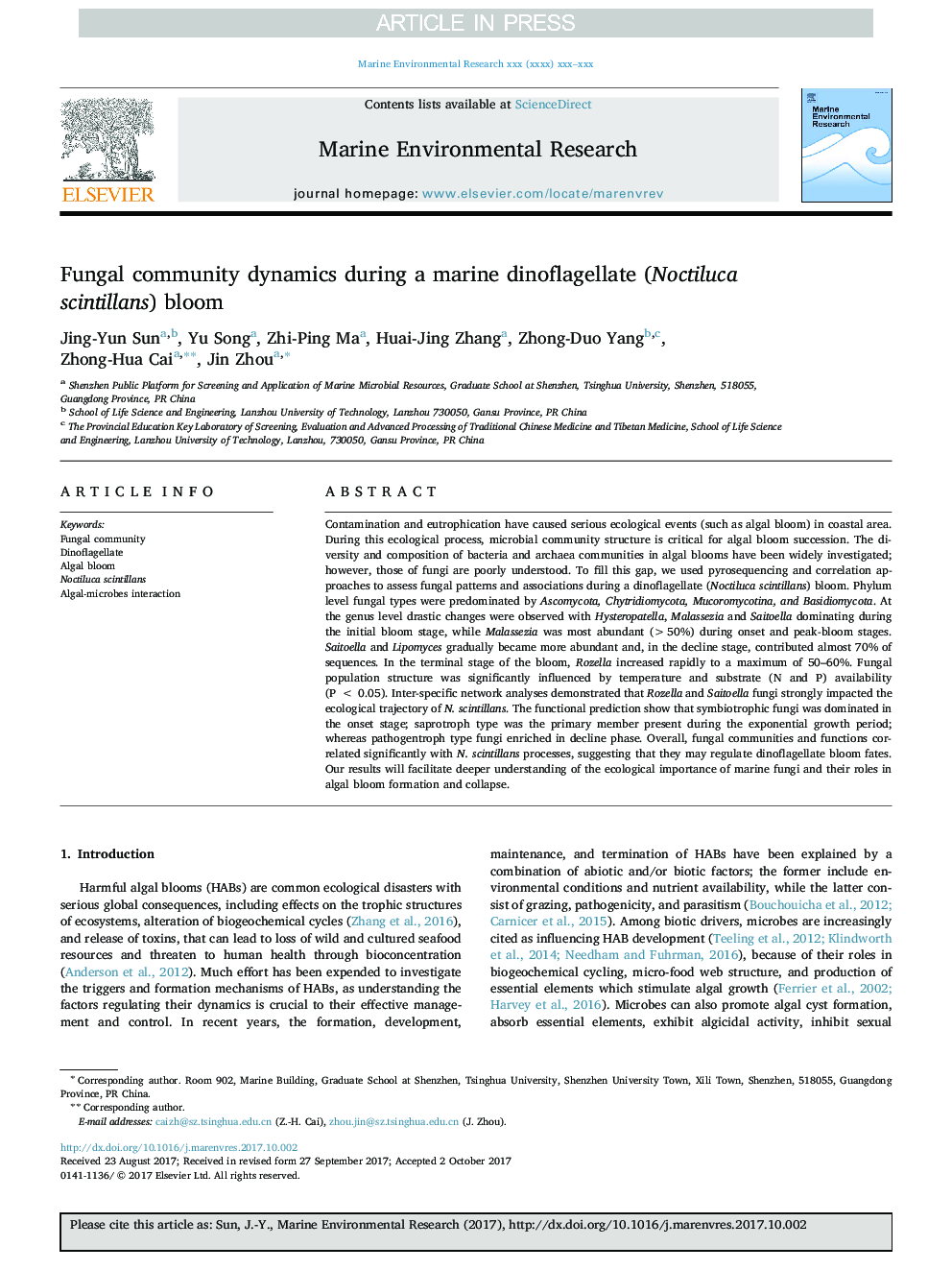| Article ID | Journal | Published Year | Pages | File Type |
|---|---|---|---|---|
| 8886461 | Marine Environmental Research | 2017 | 12 Pages |
Abstract
Contamination and eutrophication have caused serious ecological events (such as algal bloom) in coastal area. During this ecological process, microbial community structure is critical for algal bloom succession. The diversity and composition of bacteria and archaea communities in algal blooms have been widely investigated; however, those of fungi are poorly understood. To fill this gap, we used pyrosequencing and correlation approaches to assess fungal patterns and associations during a dinoflagellate (Noctiluca scintillans) bloom. Phylum level fungal types were predominated by Ascomycota, Chytridiomycota, Mucoromycotina, and Basidiomycota. At the genus level drastic changes were observed with Hysteropatella, Malassezia and Saitoella dominating during the initial bloom stage, while Malassezia was most abundant (>50%) during onset and peak-bloom stages. Saitoella and Lipomyces gradually became more abundant and, in the decline stage, contributed almost 70% of sequences. In the terminal stage of the bloom, Rozella increased rapidly to a maximum of 50-60%. Fungal population structure was significantly influenced by temperature and substrate (N and P) availability (PÂ <Â 0.05). Inter-specific network analyses demonstrated that Rozella and Saitoella fungi strongly impacted the ecological trajectory of N. scintillans. The functional prediction show that symbiotrophic fungi was dominated in the onset stage; saprotroph type was the primary member present during the exponential growth period; whereas pathogentroph type fungi enriched in decline phase. Overall, fungal communities and functions correlated significantly with N. scintillans processes, suggesting that they may regulate dinoflagellate bloom fates. Our results will facilitate deeper understanding of the ecological importance of marine fungi and their roles in algal bloom formation and collapse.
Related Topics
Physical Sciences and Engineering
Earth and Planetary Sciences
Oceanography
Authors
Jing-Yun Sun, Yu Song, Zhi-Ping Ma, Huai-Jing Zhang, Zhong-Duo Yang, Zhong-Hua Cai, Jin Zhou,
